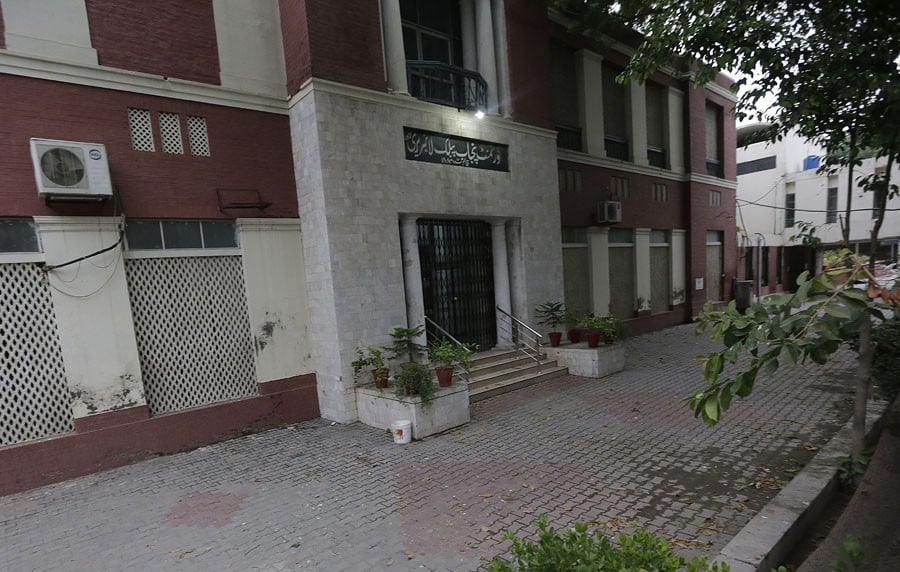
Accessing public records at the Punjab Archives can be an ordeal. Here’s how...

As I stepped into the white-stone building of Punjab Archives, I could not fathom the kind of challenges that awaited me. I began to understand the significance of easy access of archival documents to the public, very much their right as citizens.
The Punjab Archives is a place which is often seen together with the other state building in the area, and it is only when you approach it as a researcher that you realise the distinct environment of the place. As a student, you are required to carry a letter from your university/college professor in order to enter the premises of the archives and, further on, for identification purposes. However, I didn’t know that this was just the beginning of a very long process.
The second thing that would be a grave hindrance to you is your own subjectivity. Traditionally, the staff at the Punjab Archives begins by asking where you are from, what you are studying, and especially being an undergrad student would appreciate you to go for topics that are "easier."
The fact that you are a student, then, gives them the leverage to delay the procedure. In my case, they eventually almost convinced me to change my "controversial subject" to something more commonplace so that the staff would provide access more easily. For the initial days it’s mostly small talk before you get down to the real thing.
The letter as a gateway into the archives too makes the feeling of accessibility more of an illusion than a reality. There are various stages to your research before you finally get to the point where you can get anything of real importance. At the archives, you mainly get introduced to the staff that provides you with a log book containing a list of documents available on a particular subject matter, an amalgamation of correspondences which basically begin from the time the archives were first made.
A student researcher I interviewed told me that the biggest problem is the "hard copies; there are a lot of books, and the titles are organised alphabetically. This is inconvenient because it takes forever to find the code or number for any particular document which could easily be accessed had it been digitised."
The catalogue book is so time-consuming that it takes forever to get to the document. Often days go by in an attempt to skim through it, which was the case for a lot of people I talked to.
Another problem that you face on deciding the right topic is the fact that documents are arranged according to title and not subject matter. So, for example, if you are to research on the topic of lock hospitals, you often have to come across files on correspondence in general about hospitals, which would take hours to sift through before finally getting to the desired archive.
The archival process is without a doubt not far from being politicised. If you as a researcher were to look only at the Punjab Archives, you are repeatedly told that the topic of your choice is unavailable. Whether this mysterious absence is because of their refusal to allow access to university students or because of a real lack of material is hard to know for sure. A university student I interviewed told me: "There were a lot of documents that sounded interesting to research but just weren’t available to us, or we were constantly told we could access them but were never actually allowed to."
This politicisation can then be seen specifically within the newspaper archives in the Punjab Public Library and the Quaid-e-Azam Library. Another student researcher told me how she wanted to look at the Islamisation period in 1977-1988 and how often she had to make up stories about why she wanted access to files from that particular time. She was questioned as to the purpose of her research and whether she was a member of the media.
There was not much to glean off of newspaper archives that had themselves been censored during that era. For a researcher on your own within the city the real question is how much jeopardy you are willing to take on to gain access to the archives from police records, where the newspaper archives are otherwise silent.
One must understand that access though appearing very simplified is not simple at all. Despite the fact that the catalogue books look adequate enough for record keeping, they are outdated and somehow that delays the research. There was a lot of talk about how the digitisation of the archives was happening but all access which the researchers come across is in hard copies.
There is a need for reforms within the archival departments so the access to the general public becomes easier. Part of the delay to the access or in many cases no access at all is because the public or a student researcher doesn’t have proper and adequate availability of the archives. It is through the staff that the documents can be accessed. As such the researcher is entirely at the mercy of the staff. This hinders the kind of research that takes place within the city.
One way to depoliticise this could be to completely digitise the archives which would simultaneously speed up the process of research. This will further accommodate the quality of research and, most importantly, empower a student researcher.